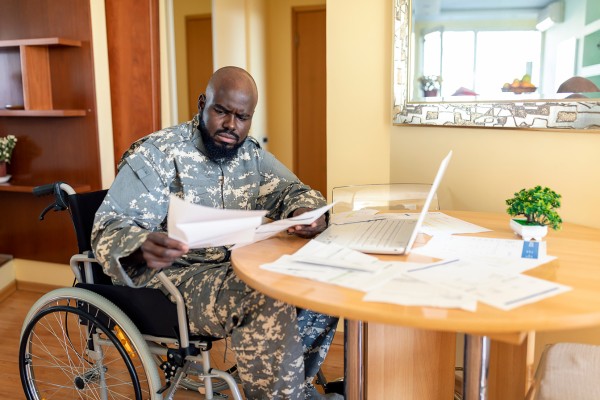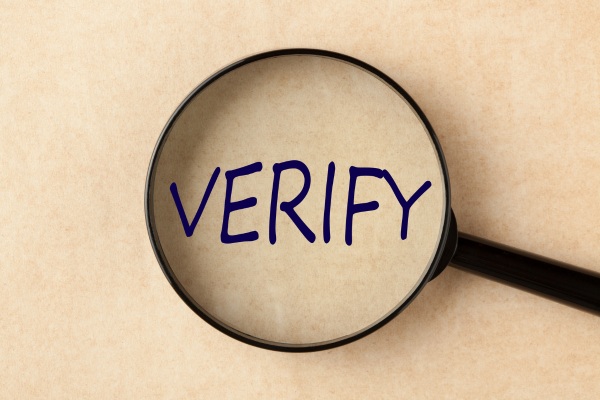Does SCRA Apply to Disabled Veterans? What to Know
The Servicemembers Civil Relief Act is a federal law designed to protect active duty servicemembers from certain legal and financial obligations while they serve the nation. From housing protections to relief from high interest rates, the Civil Relief Act SCRA helps active duty service members focus on their military service without unnecessary legal burdens.
Yet, one question comes up often. Many disabled veterans assume that because they have a service-connected disability or a veteran status, they automatically qualify for SCRA protections. This misunderstanding can lead to confusion, especially when facing financial obligations such as auto loans, installment loans, or even foreclosure proceedings.
So, does SCRA apply to disabled veterans? Keep reading to learn when SCRA protections apply and what options disabled veterans really have.
Contents
Does SCRA Apply to Disabled Veterans?

Disabled veterans often believe their service-connected disability gives them the same legal protections as active duty personnel under the Servicemembers Civil Relief Act.
In practice, SCRA protections are tied directly to active duty military service, not to disability ratings or veteran benefits. This means a VA disability rating or retired status does not automatically qualify someone for SCRA protections.
Disabled Veterans Are Not Automatically Covered
The Civil Relief Act SCRA is not a veteran benefit program. Instead, it is a federal law designed to protect:
- Military personnel serving on active duty in the Army, Navy, Marine Corps, Air Force, or Coast Guard.
- Commissioned officers currently serving on active duty in the Public Health Service or the National Oceanic and Atmospheric Administration.
- Reserve component members and National Guard personnel serving under federal orders
Disabled status or retired military membership alone does not activate SCRA protections.
When Disabled Veterans Do Qualify?
There are situations where disabled veterans regain eligibility. If they are called to active duty through Reserve or National Guard federal orders, SCRA protections resume.
Coverage begins with the active duty orders and remains in place during the entire period of service.
No Special SCRA Protections for Disability Alone
SCRA protections are not expanded for disabled veterans. The law does not grant additional rights beyond what applies to all service members. For example:
- A disabled veteran with federal student loans cannot claim SCRA interest rate reductions unless on active duty
- Automobile leases, installment loans, or pre-service loans are only protected when active duty status is verified
- Court orders involving default judgments or foreclosure proceedings will not consider disability alone as a basis for SCRA rights
In short, SCRA protections apply based on active duty status, not disability rating or past service.
Who Is Covered Under the SCRA?

The Servicemembers Civil Relief Act applies only to specific groups, and eligibility is always based on active duty service. Those covered include:
- Individuals serving on active duty in the Army, Navy, Air Force, Marine Corps, or Coast Guard, including those in full-time support roles.
- Reservists and members of the National Guard serving under federal Title 10 or Title 32 orders for more than 30 consecutive days.
- Commissioned officers serving on federal active duty in the Public Health Service or the National Oceanic and Atmospheric Administration.
- Dependents of active duty servicemembers, such as spouses and children.
- Individuals who hold a valid power of attorney and act on behalf of the servicemember.
These groups are eligible for SCRA protections, while veterans and retired military members are not covered unless they are recalled to active duty.
How Disabled Veterans Can Protect Themselves?
Disabled veterans who are not on active duty may not qualify for protections under the Servicemembers Civil Relief Act, but there are several ways to safeguard themselves through other benefits and careful planning.
Use VA Benefits When Not on Active Duty
The Department of Veterans Affairs provides programs that operate independently of the Civil Relief Act SCRA. These include disability compensation, medical coverage, housing assistance, and debt relief resources.
For instance, a disabled veteran facing financial obligations on a mortgage may apply for VA housing grants or loan modifications that reduce monthly payments and ease long-term financial strain.
Check for Recalled Orders or Re-enlistment
When a disabled veteran is recalled through Reserve or National Guard federal orders, SCRA protections apply once again. It is critical to provide creditors, landlords, or lenders with a written request and a copy of the active duty orders.
Doing so ensures access to legal protections such as eviction protection, foreclosure relief, and caps on interest rates.
Verify Your Active Duty Status

If there is uncertainty about eligibility, verifying military service is the safest step.
Employers, landlords, and lenders can confirm active duty status through services like SCRACVS. This prevents confusion, protects legal rights, and ensures that SCRA benefits are properly applied whenever active duty service is in effect.
Need Proof of Active Duty Status?
If you are a lender, attorney, landlord, or HR manager, confirming whether someone is on active duty is an essential step before making decisions that could affect their legal rights. Relying on assumptions or incomplete information can create costly mistakes.
SCRACVS provides fast, reliable, and court-admissible military verification reports pulled directly from the Department of Defense’s DMDC database. These reports help you stay compliant with the Servicemembers Civil Relief Act while also ensuring servicemembers receive the legal protections they are entitled to.
Taking the time to verify military service protects both your organization and the individual. It removes uncertainty, reduces legal risk, and demonstrates that you are operating responsibly under federal law. Start your verification today.
FAQs
Can a disabled veteran get SCRA protections?
A disabled veteran can only receive protections under the Servicemembers Civil Relief Act if they are on active duty or recalled to military service. Having a service-connected disability or VA benefits alone does not qualify someone for SCRA rights. Once active duty orders begin, protections such as interest rate caps, eviction protection, and relief from certain financial obligations apply for the duration of service.
Does a 100% VA disability rating qualify for SCRA?
Even with a 100% disability rating from Veterans Affairs, SCRA benefits do not automatically apply. The Civil Relief Act SCRA focuses exclusively on active duty status. Unless a veteran is called to active duty through Reserve or National Guard federal orders, their VA rating does not provide additional legal protections. The key factor is whether they are serving as active duty servicemembers at the time.
How can I check if someone is eligible for SCRA?
The safest way to confirm SCRA eligibility is by verifying active duty status through a trusted military verification service. SCRACVS provides court-admissible reports sourced from the Department of Defense’s DMDC, allowing lenders, landlords, and attorneys to confirm whether military personnel are currently on active service. This ensures compliance with federal law and prevents issues with foreclosure proceedings, default judgments, or financial obligations.
What benefits do disabled veterans get outside of SCRA?
Disabled veterans who are no longer on active duty may rely on benefits offered through Veterans Affairs. These include disability compensation, housing assistance, health care, and programs such as debt relief and student loan benefits. While these options are separate from the Civil Relief Act, they provide valuable support in managing legal and financial obligations once a servicemember has left active service.






